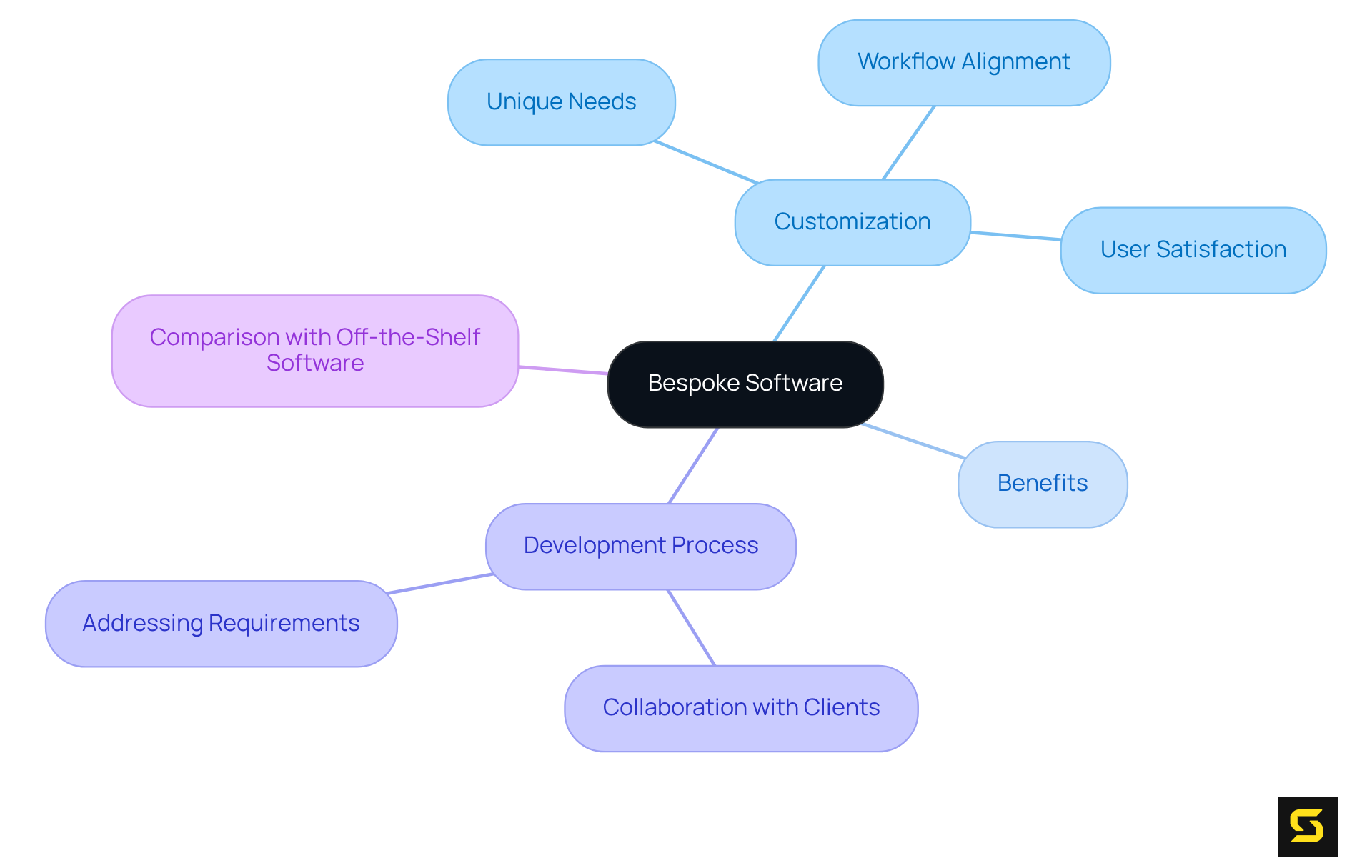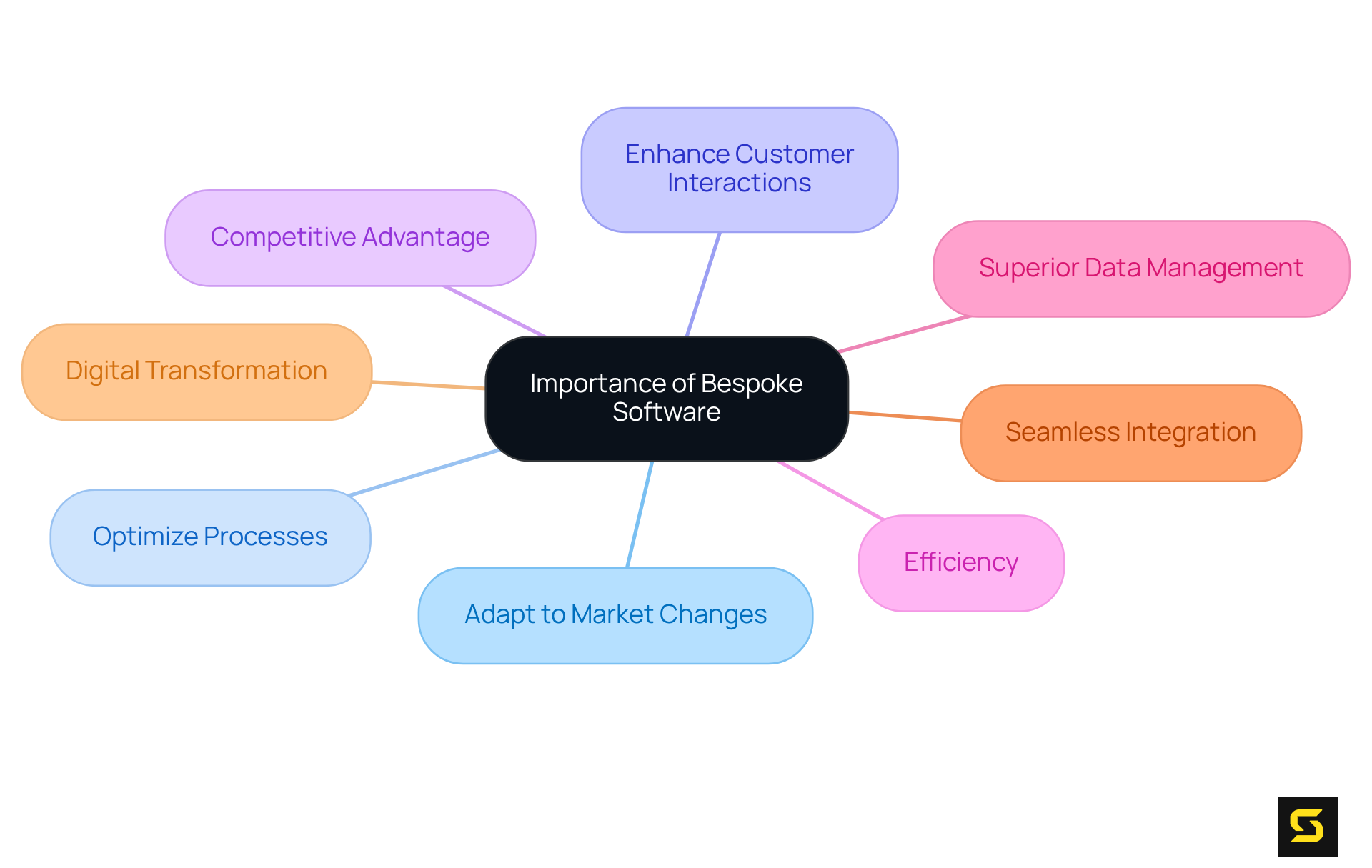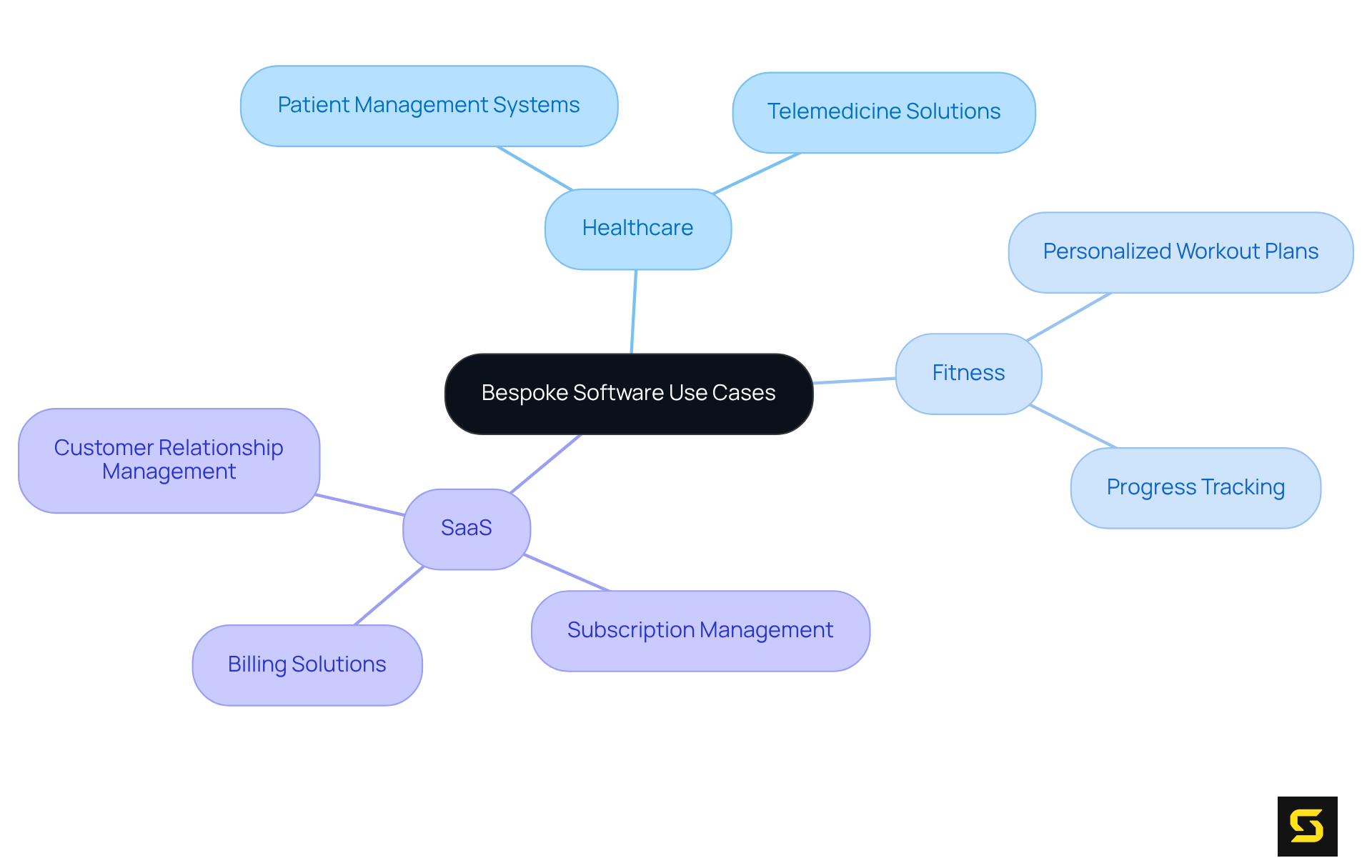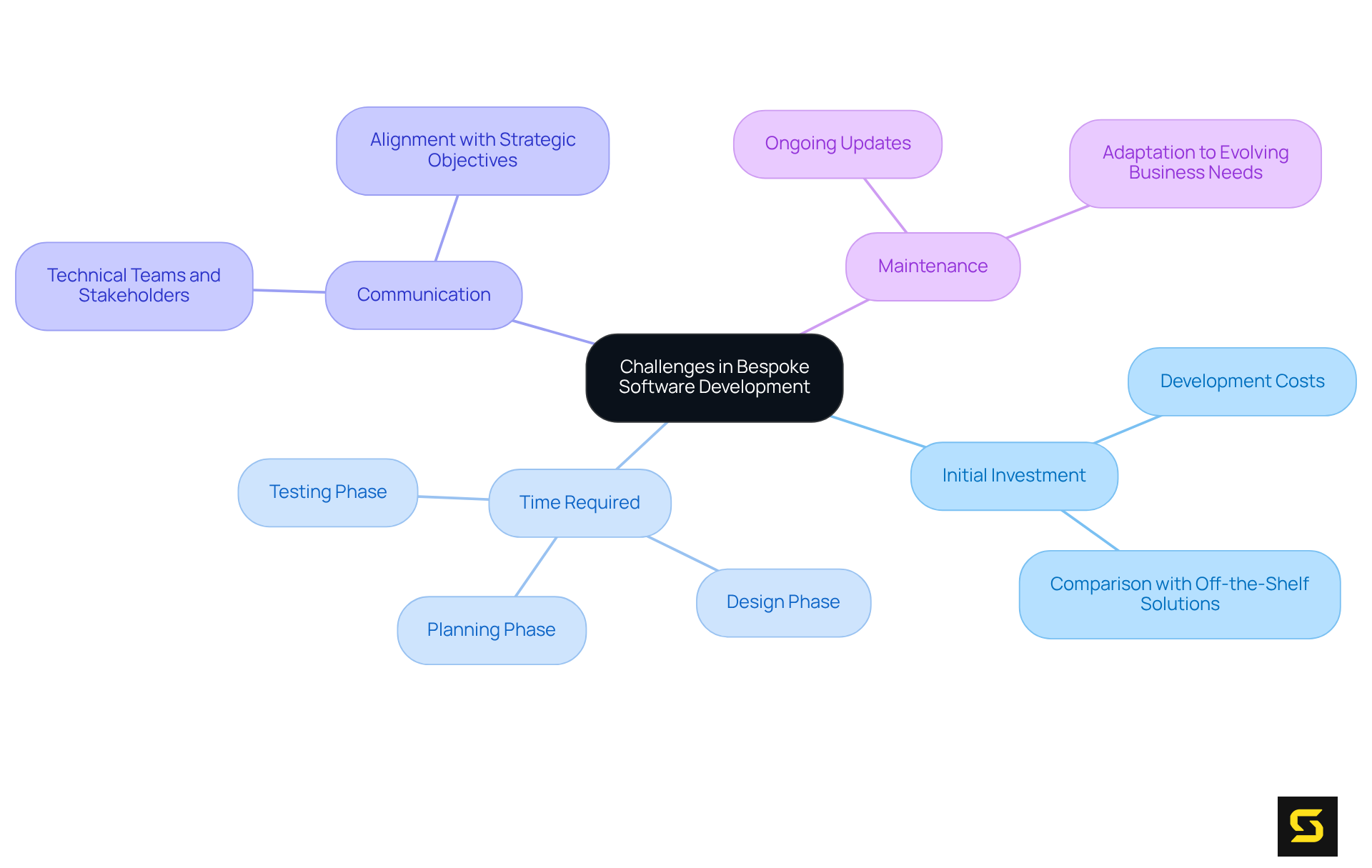Overview
Bespoke software represents custom-developed applications meticulously crafted to address the distinct needs of businesses, thereby enhancing operational efficiency and user satisfaction through tailored solutions. This article underscores its critical role in contemporary business by illustrating how bespoke software empowers organizations to swiftly adapt to market fluctuations, optimize processes, and seamlessly integrate with existing systems, ultimately securing a competitive advantage. The strategic implementation of bespoke software not only drives innovation but also positions businesses at the forefront of their industries.
Introduction
In today's landscape, where businesses encounter increasingly complex challenges, the demand for tailored solutions is more critical than ever. Bespoke software, meticulously crafted to address the unique needs of organizations, paves the way for enhanced efficiency, streamlined operations, and improved customer engagement.
Yet, as companies navigate the intricacies of custom software development, they must confront substantial investments and potential pitfalls. Thus, what strategies can organizations employ to effectively leverage bespoke software while overcoming these hurdles?
It's imperative to explore these avenues to harness the full potential of tailored solutions.
Define Bespoke Software: A Tailored Approach to Development
Tailored applications, also known as custom programs, represent systems meticulously crafted to meet the unique needs of specific entities or users. Unlike off-the-shelf applications, which are mass-produced for a general audience, bespoke software is designed to tackle specific business needs, workflows, and challenges. This level of customization in bespoke software ensures that the system aligns seamlessly with the organization's operational processes, significantly enhancing efficiency and user satisfaction. The development process typically involves close collaboration between the development team and the client, guaranteeing that all functional and non-functional requirements are comprehensively addressed.

Contextualize the Importance of Bespoke Software in Modern Business
In the rapidly evolving digital landscape, businesses encounter unique challenges that necessitate tailored solutions. Custom solutions are essential for enabling businesses to adapt to changing market conditions, optimize processes, and enhance customer interactions. By investing in bespoke software, companies can secure a competitive advantage through improved efficiency, superior data management, and the ability to scale operations as needed.
Furthermore, custom applications integrate seamlessly with existing systems, allowing organizations to leverage their current technology investments while enhancing functionality. As companies increasingly prioritize digital transformation, the demand for bespoke software continues to surge, establishing it as a pivotal component of contemporary business strategy.

Examine Use Cases: How Businesses Leverage Bespoke Software
Bespoke software plays a critical role across diverse industries, each facing distinct requirements and challenges. In the healthcare sector, for example, bespoke software solutions streamline patient management systems, empowering healthcare providers to deliver timely and efficient care. Similarly, fitness companies leverage bespoke software to enhance user engagement through personalized workout plans and progress tracking. In the SaaS domain, organizations often seek bespoke software to effectively manage subscriptions, billing, and customer relationships. These instances underscore how bespoke software not only fulfills specific operational needs but also fosters innovation and growth, enabling organizations to swiftly adapt to market demands. By embracing bespoke software solutions, companies can significantly enhance their service offerings and improve overall customer satisfaction.

Challenges and Considerations in Developing Bespoke Software
While tailored applications present numerous advantages, the creation of custom solutions also introduces significant challenges. The initial investment required for development can be considerable, especially when compared to off-the-shelf alternatives. Moreover, the development process demands substantial time, encompassing thorough planning, design, and testing phases. It is crucial for organizations to ensure effective communication between technical teams and commercial stakeholders, aligning the application with strategic objectives. Additionally, ongoing maintenance and updates are imperative to keep the system relevant and functional as business needs evolve. By recognizing these challenges, organizations can better equip themselves for the journey of bespoke software development, ultimately maximizing the benefits of their investment.

Conclusion
Bespoke software embodies a strategic approach to application development, underscoring the necessity of customization to meet the distinct needs of businesses. By prioritizing tailored solutions over generic software, organizations can ensure their systems align seamlessly with operational requirements, ultimately driving efficiency and enhancing user satisfaction.
The exploration of bespoke software reveals critical insights into its significance in tackling the specific challenges faced by diverse industries. From healthcare to fitness and SaaS, bespoke solutions not only facilitate improved processes but also foster innovation and enhance customer engagement. Nevertheless, developing such tailored applications presents challenges, including substantial initial investments and the ongoing necessity for maintenance and updates.
Acknowledging the pivotal role of bespoke software in today’s business landscape compels organizations to adopt this customized approach. By investing in bespoke solutions, businesses can optimize their operations and secure a competitive edge in an ever-evolving market. The journey of bespoke software development, while intricate, holds immense potential for growth and success, making it an essential consideration for any forward-thinking organization.
Frequently Asked Questions
What is bespoke software?
Bespoke software, also known as tailored applications or custom programs, refers to systems specifically crafted to meet the unique needs of particular entities or users.
How does bespoke software differ from off-the-shelf applications?
Unlike off-the-shelf applications, which are mass-produced for a general audience, bespoke software is designed to address specific business needs, workflows, and challenges.
What are the benefits of using bespoke software?
The customization in bespoke software ensures that the system aligns seamlessly with an organization's operational processes, significantly enhancing efficiency and user satisfaction.
What is the development process for bespoke software?
The development process typically involves close collaboration between the development team and the client, ensuring that all functional and non-functional requirements are comprehensively addressed.





